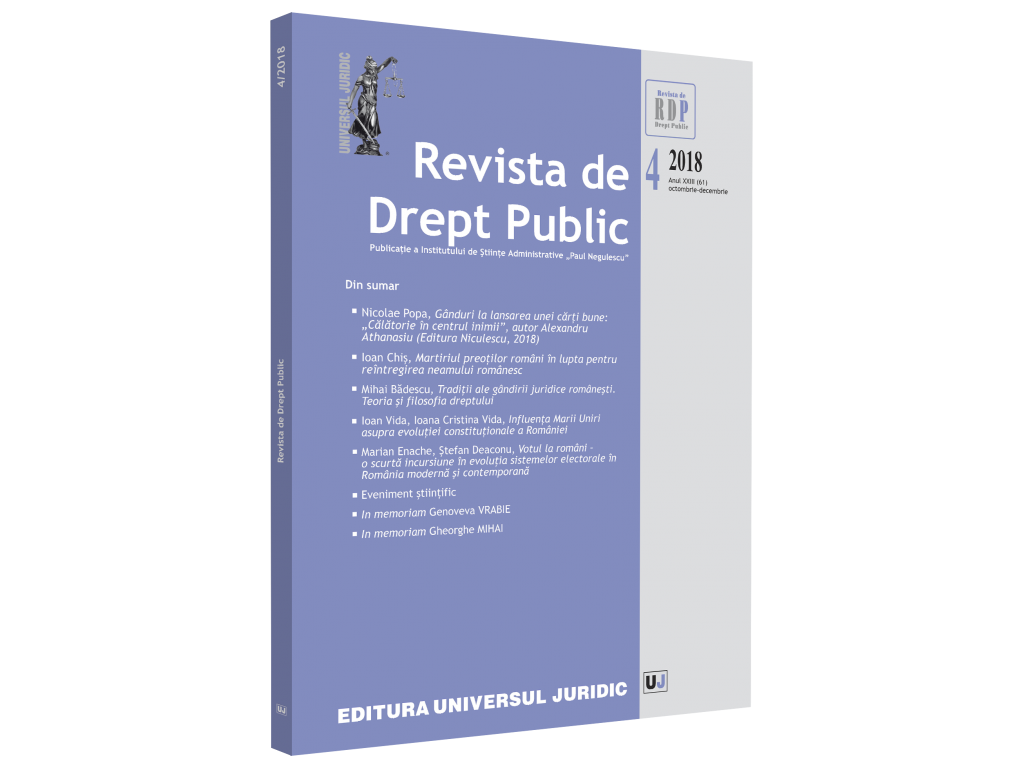Votul la români – o scurtă incursiune în evoluţia sistemelor electorale în România modernă şi contemporană
Romanians’ vote – a brief incursion in the evolution of the electoral systems in modern and contemporary Romania
Author(s): Marian Enache, Ștefan DeaconuSubject(s): Law, Constitution, Jurisprudence, Constitutional Law, Civil Law, Political history, Recent History (1900 till today), Electoral systems, History of Communism
Published by: Universul Juridic
Keywords: the electoral system; Organic Regulations; Constitutional Review; electoral law; right to vote; Great Assembly; Communist regime;
Summary/Abstract: Beginnings of a modern political organization are related to the Organic Regulations in the Romanian Principalities, which set up the distinction between legislative, executive and judicial powers. The trend of these regulations of restricting the participation in the political life for a limited number of boyars was in contradiction with the development of the society and of the political system of the Principalities. If the Revolution of 1848 did not manage to set up a sustainable change of the electoral system, in exchange, the decision of the Congress of Paris to convene the Ad-hoc Assemblies required the need to establish certain rules for the appointment of the members of these Assemblies. These rules marked the beginning of a long process of transformation and change of the electoral system over time, both during the period of the constitutional monarchy (1866-1947), and during the period of Communist Romania. Beyond all these changes, it is remarkable, during the Communist period, the fact that, despite the full control of the regime over the society and electoral system, the head of state was elected over the entire communist period by the obedient vote of the Great National Assembly, so indirectly.
Journal: Revista de Drept Public
- Issue Year: 2018
- Issue No: 04
- Page Range: 63-81
- Page Count: 19
- Language: Romanian
- Content File-PDF

